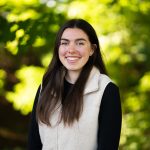The Seed Hub is a volunteer-driven program focused on the ethical collecting and growing of seeds from our native trees and shrubs. By connecting with our community, we can help foster the growth and diversity of our future urban forests.
Seed Hub’s events include a series of hikes that shift seasonally to include forecasting and hands-on collecting as well as the processing and cleaning of seeds. Community volunteers can also join events where we plant seeds directly into naturalization sites or into pots for fall giveaways.
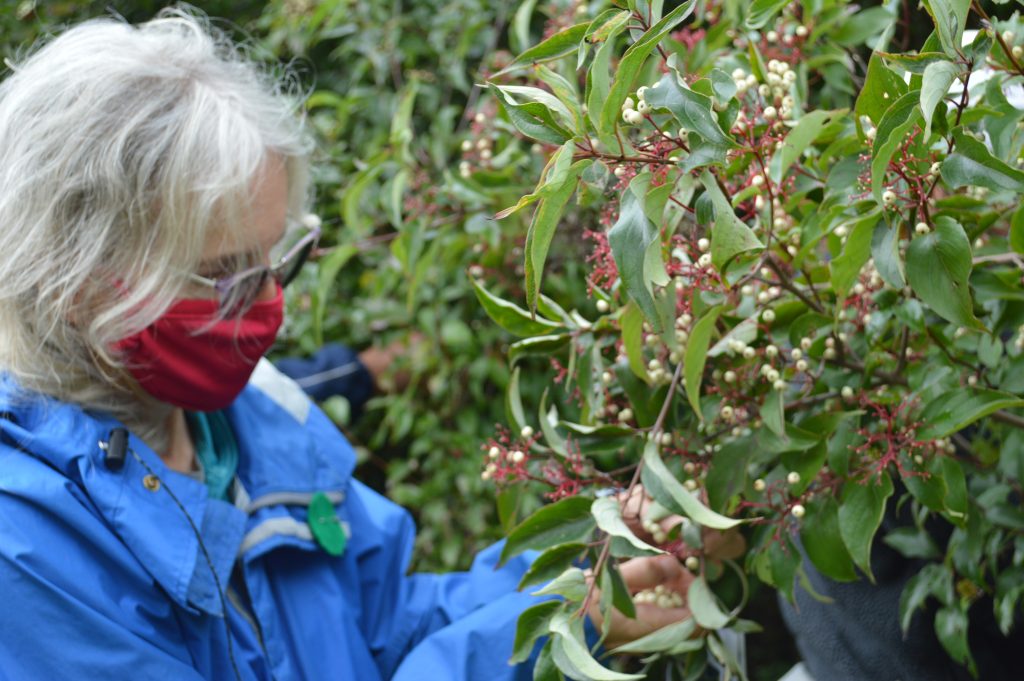
Seed Forecasting: Seed forecasting is the act of surveying the flowering and fruiting structures on trees and shrubs. We forecast mainly in spring and fall: spring seed forecasting helps estimate what the fall seed crop could look like that year, while fall seed forecasting is used to narrow down exactly when the seeds will mature and be ready to be collected.
Seed Collection and Processing: Seed collection occurs when the seeds ripen. Seeds of different species mature at different times of the year. We watch not only the trees but also the animals who rely on the seeds, which are a great indicator that seeds are ready to collect. Only a small amount of seed is needed and collected for planting, allowing the animals and birds to continue to eat and stash away the bulk of the harvest.
Species whose seeds ripen in spring include maples, willows, and poplars. In summer, ripe seeds include species such as cherries and other berry-type trees and shrubs. Most conifer species as well as oaks and ashes become ready in the fall season. Some species even hold onto their seeds through winter, such as sycamores and alders. Many species produce seed every year, while a handful of others will go through yearly cycles of good and bad seed crops.
Processing the collected seed involves preparing the seeds for the specific conditions required before they are ready to sprout and grow. Processing is different for each type of seed and is usually done very soon after the seed is collected to give the seeds their best chance of growing up. This can include anything from placing the seeds in a fridge to simulate winter or to removing the flesh of a berry by grinding it with coarse sand to simulate passing through an animal’s digestive tract.
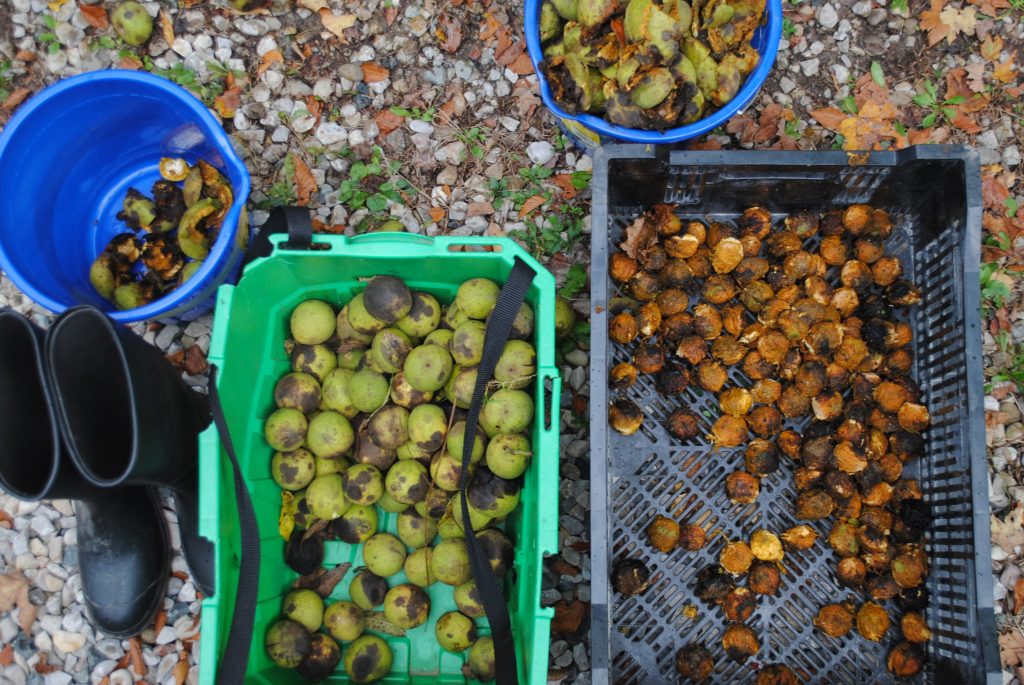
Seedling Growing: Partnering with local nurseries and greenhouses throughout London, the Seed Hub plants seeds in educational workshops. These seedlings are a great way to help increase the number and diversity of trees given back to our community. Sometimes seedlings are grown to support ReForest London’s naturalization plantings.
Direct Plantings: Seeds are planted directly into parks and naturalization projects, in groupings or at random intervals. This is to mimic natural distribution by wind or local wildlife, and helps encourage natural regeneration in these areas and creates the best chances for seed survival.
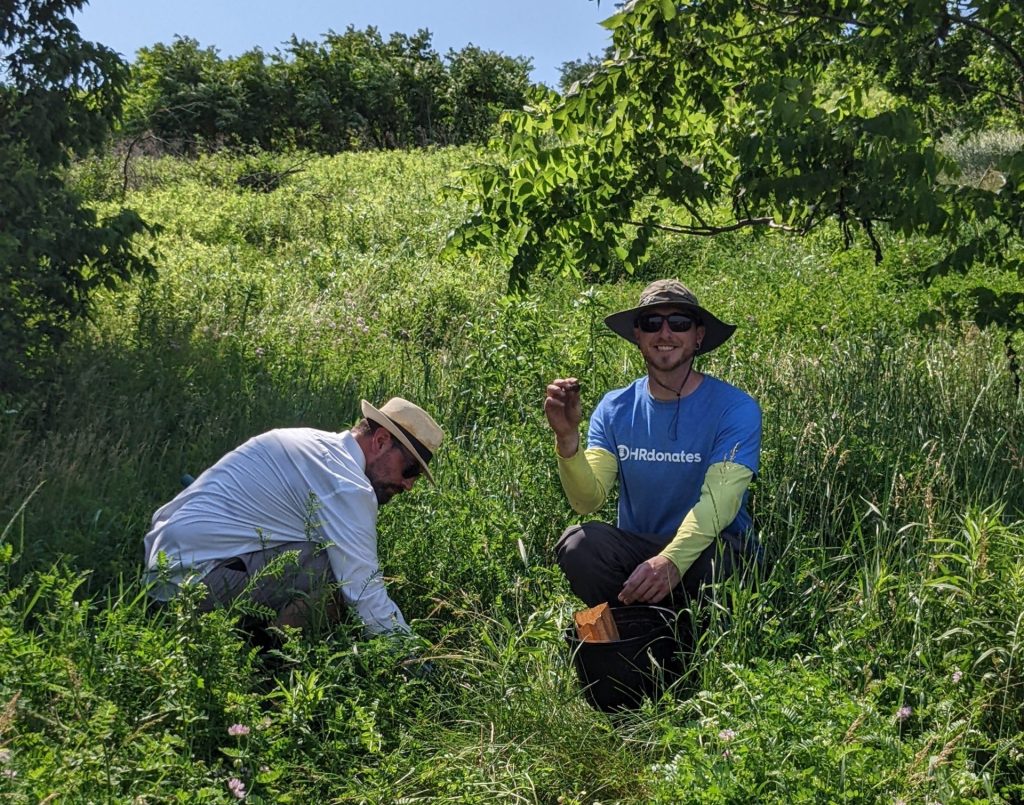
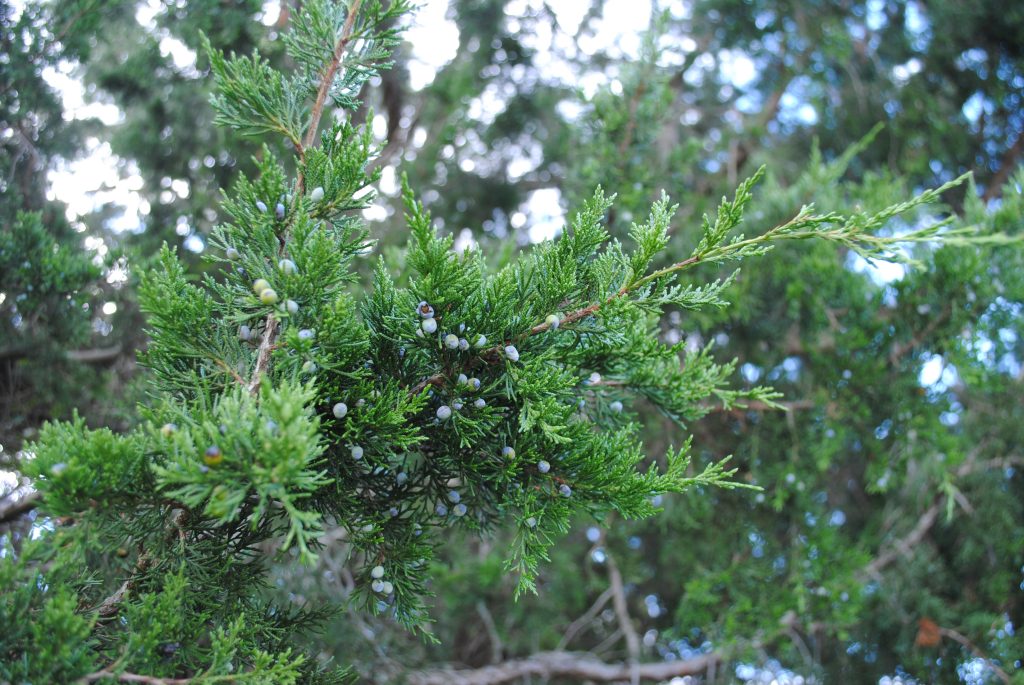
Want to Get Involved?
The Seed Hub is looking for volunteers to help forecast seed collection by watching and learning about London’s trees. With eyes and ears throughout the city, we can pinpoint the perfect times for collection.
Interested? Email Rachael, our Coordinator, Growing Programs, at [email protected] and let her know which area of London you will be able to forecast.
Be sure to download and fill out our survey form for each area you forecast!
Want to Attend an Event?
Check out the Events page (or see below) for any upcoming Seed Hub events!


